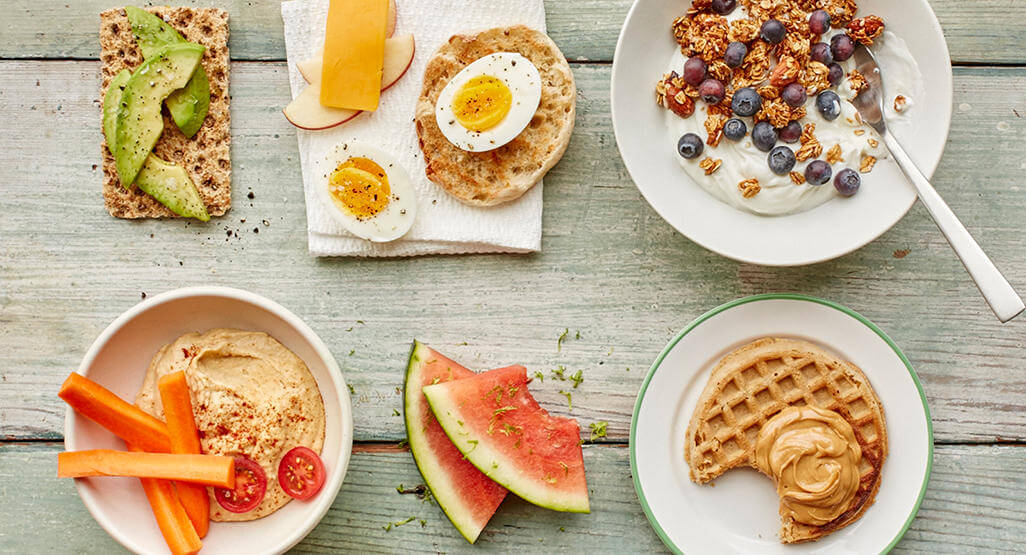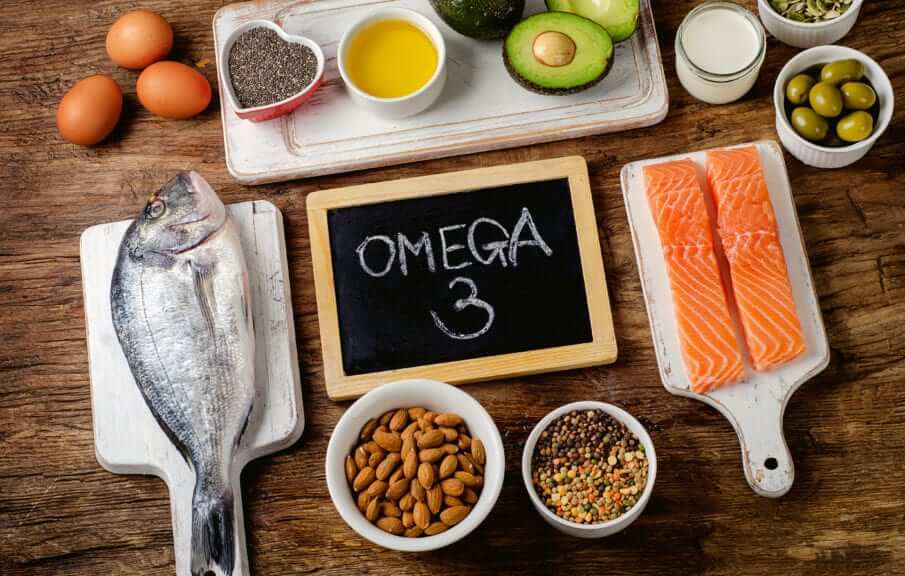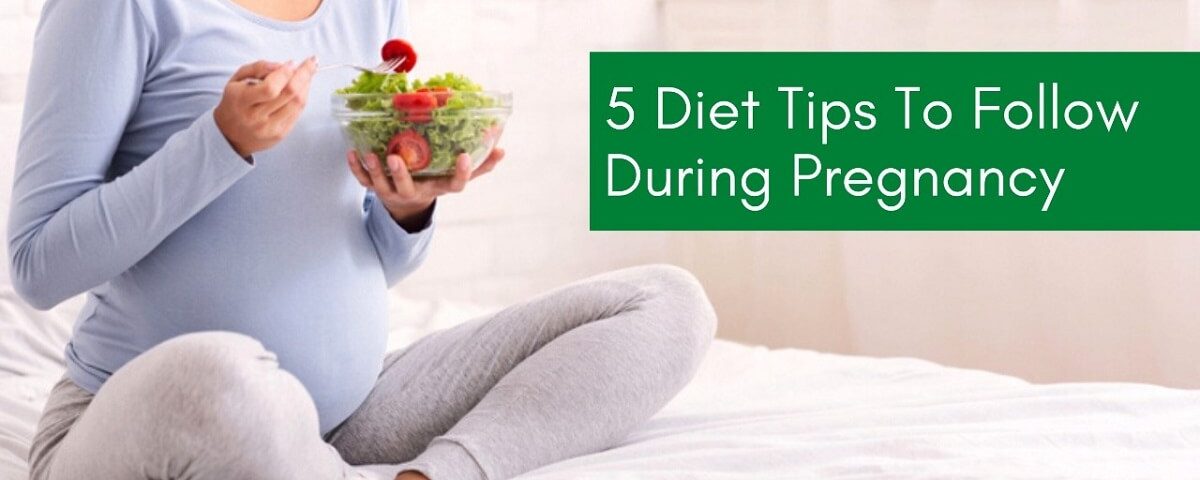Pregnancy Diet – 5 Tips For Eating Nutritious Food During Pregnancy

6 Easy Ways To Drop Those Extra Pounds
February 5, 2021
Eat Healthy During Pregnancy
February 5, 2021Being a mom is one of the most wonderful feelings in your life. As much as it brings happiness, it also brings a large amount of stress and confusion. What to eat? How to take care of yourself during pregnancy? What’s safe, and what’s not? Every mom has to go through this. And taking precautions related to foods is one of the most stressed questions. And there is no doubt in the fact that it’s really important to keep your diet safe during pregnancy. During this phase, your body needs extra nutrients, vitamins and minerals. In addition, in the second and third trimesters of your pregnancy, you may also need to add 350–500 extra calories each day.
Growth of the child may be adversely affected by a diet that lacks essential nutrients. Low eating can lead to unnecessary weight gain, which can also increase the risk of gestational diabetes and complications during pregnancy. Simply said, good nutritious foods can help you and your baby stay healthy. It also makes it much easier to lose weight during pregnancy after delivery.
During your pregnancy there are a few things that might stress you out, but eating shouldn’t be one of them. Unfortunately, all of the advice you hear — from friends, family, and yes, even total strangers — about what is and isn’t safe during pregnancy is enough to confuse anyone. So if you’re wondering what’s okay to eat and whether you have to give your favorite foods the boot for nine months, check out our guide. Follow professional dietician Priyatama Srivatava’s smart tips to maintain a weight that’s healthy for you both.
Ways to Eat Healthier During Pregnancy:
#1 – Don’t Eat For Two:
The “eating for two” theory has been around for years, and this advice has been handed down from generation to generation, but it is high time you accept that this theory is not more than just a myth. Nutritious intake of healthy foods is definitely necessary to minimize the risk of pregnancies and even birth-related complications before, during and after pregnancy. However, it is not necessary to consume these extra calories until the first three trimesters, because eating extra can lead to worse health conditions such as type 2 diabetes, heart disease and long-term circulatory disorders.
Too much eating and too much weight will harm both mother and baby during pregnancy. Studies have shown that overweight women are at higher risk of miscarriage and sometimes develop conditions such as diabetes gestation, higher blood pressure and pre-eclampsia.
Also Read: Top 6 Best foods to control Diabetes
#2 – Take Care Of Breakfast Extra During Pregnancy:

Breakfast helps reduce your morning sickness during pregnancy by boosting your blood sugar levels, which may stop you eating extra food later in the day. After a long period of ‘fasting’ during the nights, breakfast gives you a much-needed boost of strength. And if you think about it, the word BREAK-FAST will make sense to you as your body was rejuvenating and healing itself all night and also healthy development of the baby.
A healthy breakfast starts your metabolism and gives you the energy to survive the whole day. If you feel sick, have a light breakfast, increase your blood sugar levels and hopefully reduce your feeling of quietness as soon as you get up. Breakfast is the ideal time for you and your baby to take essential nutrients such as vitamin B, folate, calcium and vitamin C.
Here are few suggestions from Dietician Priyatama Srivastava:
- Add Starchy food to kick-start your energy levels and increase your metabolism.
- Always try and include fruit and vegetables. They’re packed with vitamins , minerals and fiber that will help your sluggish digestion process.
- Don’t forget that Dairy is full of protein, calcium and B vitamins, that are all vital to your growing baby.
Also Read: Weight Loss With PCOS – Why Is It Important To Take Recommendation from a Dietician
#3 – Maintain Portion Size:
Even if you eat healthy most of the time, it may be difficult to know how much you should eat. The amount of food you have to eat during pregnancy depends on different factors, including how active you are. The sum of every kind of food you eat is ‘per serving portion.’ These terms are often used by experts to guide you whether or not you eat too much.
Always eat one or two small fruits like kiwi or plum. And only one at a time for fruit such as apple or mango. Take one or two slices of fruits like papaya at a time. For full meals, share the main course with a side of vegetables or salad. The size of the starter may be more than enough, and you can add a side of the vegetables or salad if necessary. Try to eat at intervals instead of gulping all in one go. Diving them in small portions is going to help you stay full all day. With this, you will also have the opportunity to add a variety of foods in the day to manage your food cravings.
#4 – Do Get Your Omega-3 Fatty Acids:

Omega-3 fatty acids, especially DHA and EPA omega-3 long-chain fatty acids, are important during pregnancy. This can be seen in large quantities in seafood, helping to build the brains and eyes of your fetus. However, it is generally recommended that pregnant women limit their intake of seafood to twice a week due to mercury and other contaminants in fatty fish.
As a result, some females have completely avoided seafood and thus limited their intake of essential omega-3 fatty acids. Studies also found that females who eat 2–3 fatty fish meals a week receive the recommended omega-3 intake and increase their EPA and DHA blood levels.
And women who do not eat non-veg food can rely on omega extract. Many trustworthy companies are capable of extracting pure omega 3 from fish. So if you don’t want to consume fish, you can take it separately. Apart from that, there are also many other alternatives.
Omega3-rich diets can boost your baby’s neurological and brain growth before they are born, and are likely to improve early childhood vision, memory, and language skills. It can also lower your postpartum risk. ALA sources, one of three omega-3 fats, include flaxseed oil, walnuts and omega-3 fortified eggs.
Also Read: Weight Gain Foods – Eat These Healthy Diet To Put On Weight
#5 – Go For Detox Food Swaps During Pregnancy:
Detox Food Swap provides a way of safeguarding your baby and yourself from dangerous, over-processed foods and to make your diet safe and natural. Or in situations where you want sweet food, it’s easy to get a comforting piece of cake. It’s great as a special treat every now and then, but you and your baby will benefit from a few more nutritional intake than calories.
These food swaps will help you add extra safety to your baby and not try making that effort. Just swapping an initial version to a new healthier version or changing a few habits can ensure your baby’s health. Remember what you’re eating, your baby is eating that, too.
Even if you typically eat a healthy diet, some adjustments are necessary for your pregnancy. For your changing body and growing baby, you need extra nutrients and you must avoid certain foods altogether. You don’t have to follow a rigorously rigid regime — or refuse yourself — but you have to think about food choices a little more.
So that means you have to eat foods that have only a few or no minimally processed additives, preservatives, pesticides, hormones or other chemicals. You get 100% of the food nutrition only if you eat unadulterated food – it takes nothing and nothing is put into it.
Here are few suggestion from dietician Priyatama Srivastava:
- Choose wheat and whole-grain food and breads instead of white.
- Opt for organic fruit and vegetables whenever you can from your local food market.
- Limit foods that are high in salt or limit your salt intake in the food – try rock salt instead of white salt.
- Avoid foods made with chemical additives and preservatives, always go for freshly cooked food.
Energy and well-being have quite an effect on what you eat during pregnancy. Your child’s health and development may also be directly affected by the food you are taking. Since your calorie and nutrient needs have been increased, choosing nutrient-dense foods is more important than ever before.
And remember, it’s natural to gain weight during pregnancy, but in a healthy way. Always take advice from the professionals, then trust in advice, as each one is different and needs different solutions. What you do now will benefit you, your baby and your health after pregnancy. This list should be a good start to a healthy and well-nourished pregnancy.
And if you still feel confused on what you should eat or need a tailor-made diet plan specifically designed for you and your baby needs, feel free to contact us. We will give you the best advice and health tips to maintain a healthy pregnancy.


